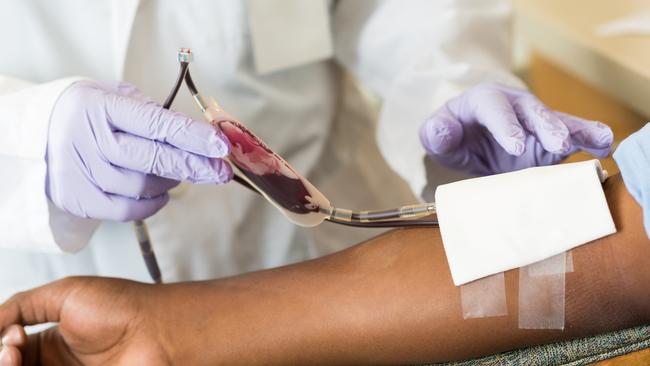Old blood can save lives like fresh blood supply: new study
WHEN it comes to donated blood everyone thought fresh was best. But as it turns out blood is like a fine wine, the red gold actually gets better with age.

VIC News
Don't miss out on the headlines from VIC News. Followed categories will be added to My News.
BLOOD is like a fine wine — it gets better with age.
A new landmark study challenges the common belief that fresh is best when it comes to giving patients lifesaving blood transfusions.
Results of a trial of 5000 critically ill patients reveals older stored red blood is just as safe as fresher blood.
The results could improve the availability of donor blood, a precious resource that it’s estimated one in three Australians will need.
In a surprise finding, there were signs that older blood may reduce side effects in the very sickest patients.
“Older blood appears to be like a good red wine — better with some age,” lead researcher Professor Jamie Cooper said.

The director of the Australian and New Zealand Intensive Care Research Centre at Monash University said previous research indicated older blood was associated with poorer patient outcomes, but none of these studies were large randomised control trials; the gold standard of medical research.
Hospitals receive blood supplies from the Australian Red Cross Blood Service.
“It’s stored a bit like the milk bottles in the fridge, from oldest to youngest, and it’s allocated to patients using the oldest blood in each compatible group first,” he said.
Some doctors will ask for the freshest possible blood for their patients because they believe it is better.
In the TRANSFUSE trial intensive care patient’s received either the freshest or oldest blood in their transfusions and researchers compared survival outcomes and reactions.
Results, published in the New England Journal of Medicine, found no difference in survival rates at 90 days between the two groups of patients.
“Unexpectedly we found there were more transfusion reactions, such as fever, with the freshest blood,” Prof Cooper said.
“We also found in the sickest subgroup of intensive care patients that they their outcomes were better with the older blood rather than the fresher.”
A Red Cross Blood Service spokesman said the study showed the current practice in Australia of storing red blood cells for up to 42 days was safe for critically ill patients.
“And shows there is no evidence for the long-held assumption within the clinical community that fresher is better.”
The National Health and Medical Research Council funded trial will likely result in improvements in the availability of blood by reducing wastage.


